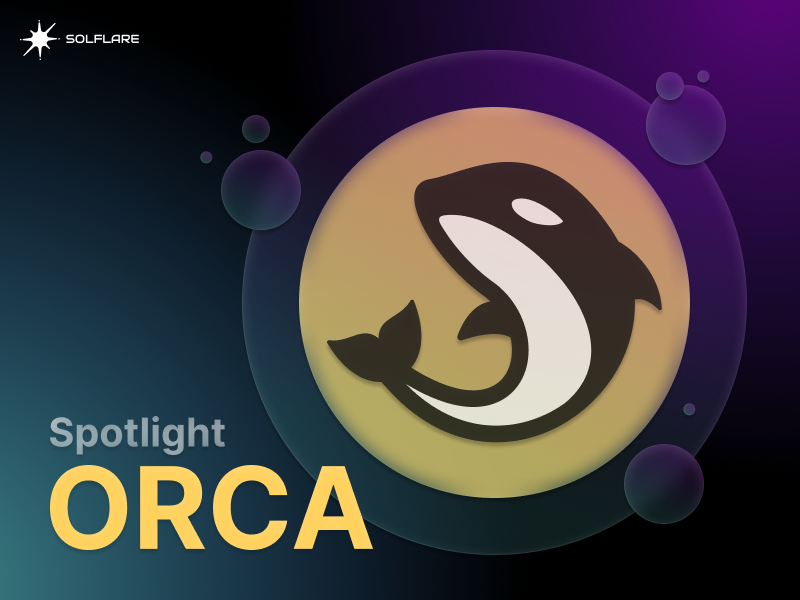Marinade Spotlight

Marinade Finance and Solflare wallet are teaming up to help further the decentralization of the Solana blockchain. Marinade’s liquid staking solution has now been integrated directly into Solflare!
Marinade Finance is a trustless liquid staking solution for the Solana ecosystem. Traditionally, when a token is staked, that token is illiquid and “out of commission” until unstaked. This dilutes capital efficiency and involves an implicit opportunity cost – which Marinade has succeeded in recovering by restoring liquidity to staked SOL!
Marinade enables SOL stakers to receive mSOL, which remains liquid while growing in value alongside staking rewards – in other words, it makes staked SOL completely liquid. mSOL can be deposited into liquidity pools, used as collateral, and traded like any other token. This idea was so appealing that less than three days after going live, Marinade hit 100,000 SOL staked.
As of today, mSOL – the liquified staked SOL from Marinade – is an integral part of the Solana DeFi ecosystem. Used for lending, liquidity provision, and more (on FTX, Serum, Raydium, Solend, Orca, and Saber, etc., and more to come!), mSOL has quickly become the capital-efficient staked SOL derivative in the market, empowering the whole Solana ecosystem.
Crucially, Marinade actively decentralizes staked SOL to a pool of over 400 validators. This means that while providing liquidity to SOL stakers, Marinade also drives decentralization of SOL staking – which is crucial for Solana, as discussed in a little more detail below!
Marinade & Solflare
Staking has always been a critical feature of Solflare – Solflare was the first staking wallet available on Solana. 24% of the entire circulating supply of SOL is staked through Solflare, with a value of over $15 billion at current prices. In other words, Solflare is the single most prominent place for Solana users to stake SOL. And as of today, users will be able to stake their SOL through Solflare with Marinade!
Integrating with Marinade has far-reaching implications for the greater good. Solflare will be encouraging their users to move their existing staked SOL over to Marinade – because Marinade’s model of decentralizing stake between validators provides censorship resistance to the whole network. Moving billions of dollars worth of stake over to Marinade will significantly increase censorship resistance for the Solana blockchain.
Why?
PoS, PoH, & the Validator Issue
Solana is a hybrid Proof of Stake (PoS) and Proof of History (PoH) blockchain which requires an interconnected web of Validators. Validators validate transactions in return for rewards in the form of SOL. Each Validator needs SOL delegated to it by SOL stakers to function. Validators with more SOL receive more tips and sway over validating transactions on the blockchain.
This model makes it difficult and expensive for a nefarious entity to overtake the validator network, but it is not impossible. If a single validator were to have an overwhelming majority of SOL delegated to it, it would be able to negatively affect the network, even halt it, and position itself for an excessive and unsustainable amount of financial rewards.
This means that it’s essential for Solana to make sure that delegated staked SOL is spread throughout the validator network as evenly as possible. However, the strength of individual validator brands, and user interfaces that list “top” validators, means that Sol can naturally end up unevenly distributed in the hands of a small number of dominant validators.
Marinade fixes this – by ensuring that SOL staked through Marinade is distributed through a network of 400+ validators. Solflare’s partnership with Marinade means that more and more of the circulating SOL supply will be staked in this manner – driving decentralization for the whole network by driving up the Nakamoto Coefficient.
Nakamoto Coefficient

Notable crypto proponent Balaji Srinivasan and his colleague Leland Lee proposed a metric known as the Nakamoto Coefficient, which quantifies a distributed network’s level of decentralization. The Nakamoto coefficient, aptly named after the pseudonymous Bitcoin founder – Satoshi Nakamoto determines the number of entities required to compromise a decentralized system.
Solana is a blockchain meant to facilitate vast amounts of uncensorable transactions in a decentralized fashion. Solana’s co-founder and CEO, Anatoly Yakovenko, said, “If you don’t maximize the Nakamoto Coefficient, then you’re not building decentralization.”
In practice, driving up this Nakamoto Coefficient for Solana means increasing the number of Validators active in the network and ensuring that Sol is distributed through the set of validators as evenly as possible – which is what Marinade and Solflare are working on together.
Final Thoughts
Given the amount of SOL staked through Solflare and the function of Marinade’s mSOL model, this integration between Solflare and Marinade will undoubtedly increase Solana’s Nakamoto Coefficient while enhancing the already robust Solana DeFi ecosystem. This is a net win for everyone using Solana!
Check out Marinade’s Medium page for more information on their protocol. If you already have a Solflare wallet, you can easily stake your SOL by following this guide. If you still need to set up your wallet, you can do so here.
